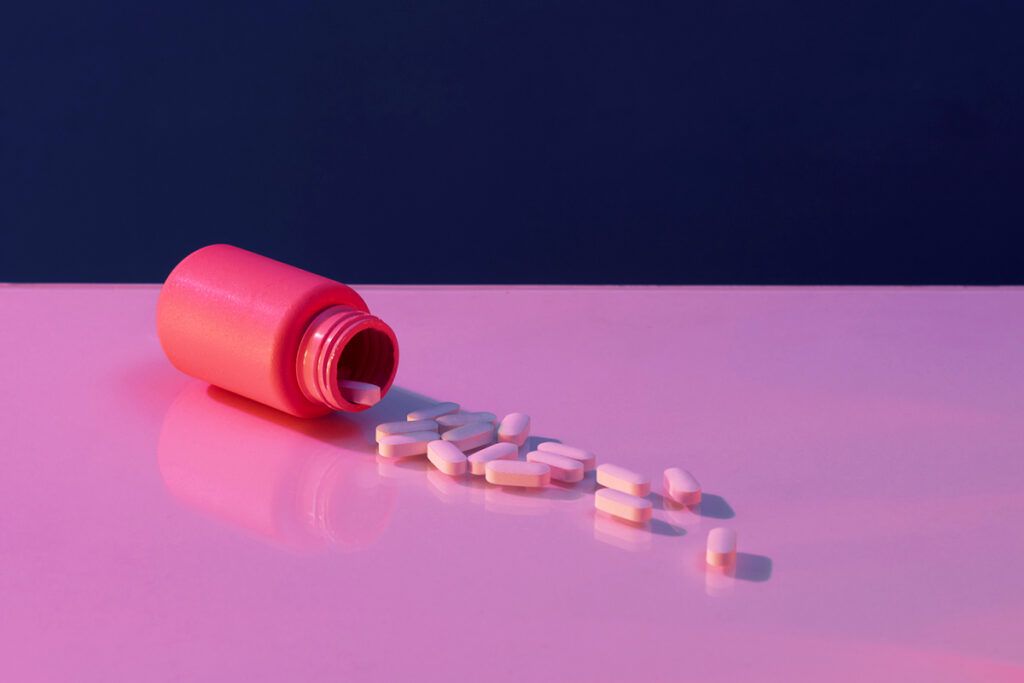Depression is a condition that affects your brain. So, medications that work by altering your brain chemistry are beneficial in treating it. Most antidepressant medications work by balancing chemicals called neurotransmitters in your brain.
Most often, depression medications work to improve, boost, and make the activity of neurotransmitters last longer.
Some of these neurotransmitters include:
Different types of antidepressant medications work on balancing different neurotransmitters, and each work in slightly different ways to ease your symptoms. They typically improve mood and emotion, which makes complementary treatments — such as talk therapy — easier and more effective.
According to the Food and Drug Administration (FDA), some of the different types of antidepressant medications include:
- selective serotonin reuptake inhibitors (SSRIs)
- serotonin and norepinephrine reuptake inhibitors (SNRIs)
- tricyclic antidepressants (TCAs)
- atypical antidepressants
- monoamine oxidase inhibitors (MAOIs)
- N-methyl-D-aspartate (NMDA) antagonist
- neuroactive steroid gamma-aminobutyric acid (GAG) — a receptor-positive modulator
There are different signs to let you know when your antidepressant is working, and you can learn what treatments work best for you.
Signs your antidepressant is working

There are different ways that you may notice your antidepressant medication is working. These medications work relatively slowly, typically over a period of several weeks.
As a result, a family member or close friend might recognize changes in your mental state before you do.
Here are some other key changes to look out for.
- Improved sleep: Getting high quality sleep improves your mental state and lowers levels of depression and anxiety. This works both ways, so as you experience less severe symptoms of depression, your sleep schedule may improve.
- Productivity: Mental disorders like depression can affect your productivity, particularly at work. Lowered work productivity can be the cause of more than 80% of the financial cost associated with depression. According to research from 2018, antidepressants can improve work productivity.
- Change in energy levels: Mood disorders such as depression affect your daily energy levels, both how much you have and how it feels. Researchers note that as early as one week into treatment with antidepressant medications, you may experience improvements to symptoms of low energy.
How long do antidepressants take to work?
Antidepressant medications are generally effective treatments, but this can depend on the type of depression they are treating. For example, the benefits can depend on the severity: The more severe the depression, the more benefits you may see. They are effective for chronic, moderate, and severe depression, but not mild depression.
Studies note that 40–60 individuals out of every 100 that take antidepressant medications notice improvements in their symptoms within 6–8 weeks.
Antidepressants can take effect within one to two weeks of starting treatment, but it may take longer to see improvements in your symptoms.
Do different antidepressants work differently?
Antidepressants vary by type in how long you may need to take them before they begin working.
For example:
- MAOIs: Within two to three weeks. E.g., Marplan
- TCAs: Up to three weeks. E.g., Norpramin
If you need help covering the cost of medications, the free Optum Perks Discount Card could help you save up to 80% on prescription drugs. Follow the links on drug names for savings on that medication, or search for a specific drug here.
